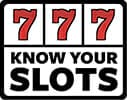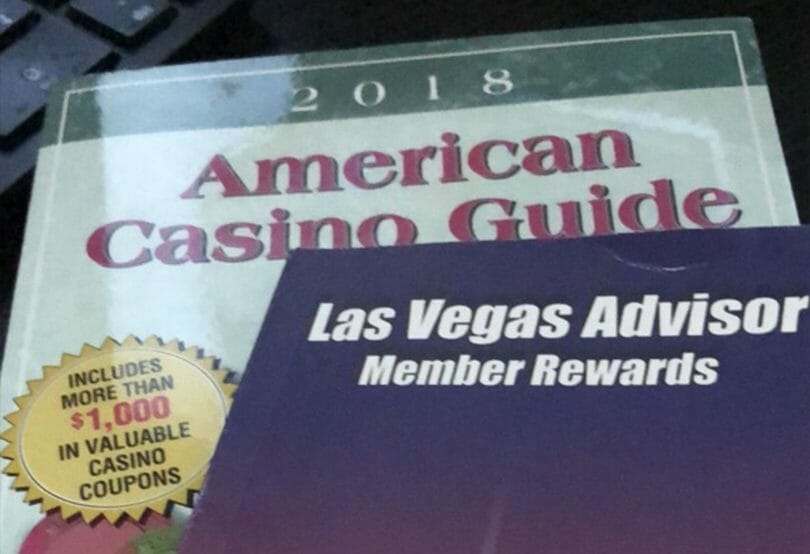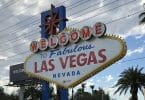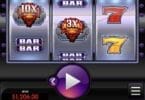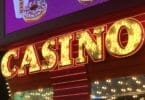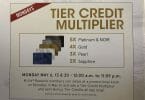For some time now I’ve been talking about Advantage Play and how part of the process is understanding how to tell when an opportunity exists. But it’s not always just about how many wilds and spins are available on Scarab, or wild reels left behind on Wheel of Fortune.
Some Advantage Players take things a step further and attempt to calculate the Expected value of an opportunity. In certain cases, it’s straightforward; in others, it can be somewhat complex math and observation.
It’s beyond the scope of this blog to share the complex scenarios – casual players will likely not play a game enough, nor wish to keep track of what’s necessary, to determine a specific play when it gets complicated. Given you also don’t know what payback a slot is set at, it’s a somewhat imprecise process because the same machine could pay or play somewhat differently at different casinos. So you’ll see me here talking about basic visual cues in most cases and leave it at that.
However, simpler Expected Value calculations can be done on some more obvious opportunities. That’s the purpose of today’s article.
Free Bets/Coupons on Table Games
One easy Expected Value opportunity is on table games. The pays are very clearly outlined, and the odds possible to calculate, because games are based on visual or concrete things. For instance, it’s not hard to know the exact house edge of a game of roulette, because all the pays, possible outcomes, and so on are very clearly outlined. Sames goes for Blackjack, Craps, Baccarat… this is part of what makes certain games attractive to players.
So when you get an offer for a $25 free bet, for instance, and have to play it on an even money bet, you can figure out what your Expected Value would be. The simplest math on many even money bets is that you’ll win roughly half the time, and lose roughly half the time, so that’s about $12.50 for the Expected Value. But since casinos always build in a house edge, you know the expected value will be a touch less.
Now, that’s awfully imprecise, so you can do the homework online and see that a craps pass line bet has a low house edge, which means it’s closer to 50/50, vs. a roulette bet on, say, red vs. black, which can have between a much higher house edge, especially when two or three zero (green) spaces are present on the wheel. Even a craps field bet, which is also even money and allowed for free bets often enough, has a higher house edge in most cases by far than the pass line. Similarly, a Blackjack bet is on the low side, but the table rules will determine the actual expected payback, depending on the house edge.
Table games is a one shot bet for free bet wagers – so it’s (for the most part) double or nothing. That’s why expected value comes out to a little less than half; a bit more than half the time you’ll lose the bet, while a bit less than half the time you’ll double up.
The exception is Blackjack, which has more push scenarios as well as the ability to potentially get 3:2 on a Blackjack. But it’ll still average out to a bit less than half your free bet as the expected value, so it still works as a rule of thumb.
Finally, free bets are offered in coupon books like American Casino Guide and Las Vegas Advisor. Even though you have to buy a book or membership, the Expected Value of the coupons in the book can well exceed the cost of the books. All you have to do is commit to hitting enough casinos that offer coupons to make it worth it. (If you’re visiting downtown/Fremont St., that alone will likely do the trick.)
Free Slot/Video Poker Play
For slot free play, you can look at the casino house edge on the denomination of slot you’re going to play (which for some states is listed online, and averages/reporting available in some places) and do some quick math. But if you presume a 85-95% average payback based on denomination, that can at least give you a guide.
If you get $100 in free slot play and play it on pennies with an average payback of 88%, your Expected Value is $88 ($100x.88). You can so a similar calculation for Video Poker (which usually casinos also allow for free slot play), with the bonus that the pay tables are publicly listed on the machine, so like tables you know exactly the expected payout of this machine and can calculate accordingly.
Unlike a free bet, which is a one shot win or lose, with your one bet, you generally make multiple wagers to work through that free play. You could with that $100 make 100 $1 wagers, or 5 $20 wagers, or 400 $.25 wagers. Slots can also pay a handpay on a single wager or nothing on 10 wagers. As such, you can have wildly different outcomes, but in the long term, on average, it should, like all other wagers, approach the expected value.
Cash + Comps
One other Expected Value calculation is the combined benefit of cash and comp earnings. Take a casino that offers a full pay video poker game like Jacks or Better, which pays roughly 99.5% over time. Now let’s assume you have a comp program that gives you a $1 in comps for every $500 you gamble. That’s a payback of .2% and a total with the cash earnings of 99.7%.
That means for every $1,000 you gamble, you should over the long haul get paid $997. Now in a given session you may lose $500 or win $1,000, but averaged out over hours of play and many thousands of hands that’s the expectation.
Now let’s say that casino does a comp multiplier day, where you get more comps back. If the casino runs a 3x promotion, it’s now increased the comp payback to .6%. Add that to the cash winnings and you’re eat 100.1% – play it in this scenario long enough and you should be a winner.
Casinos are of course aware of this, so they’ll take measures to counter things at times, like not offer full pay Jacks or Better, or do so on denominations where you can’t earn all that much (like limit it to quarters). Or they may exempt video poker from the multipliers, or comp earnings altogether.
Savvy players will always check the pay tables and the promotions in case the right positive Expected Value scenario. For true positive Expected Value scenarios it tends to work best with Video Poker and tables, because other games, like slots and Keno, have such high house edges in most cases, it just can’t reach above it.
However, if you have two casinos near each other and one’s giving you a higher Expected Value, even if it’s negative, it may be worth playing there so your money will last longer. For instance, if a casino in a market like Las Vegas is offering a 10x promotion, it could be valuable.
